Ants are fascinating creatures that can be found in almost any location—including vegetable gardens.
While they may boost soil health, these sneaky little critters can cause damage to vegetable crops.
This article provides information on controlling ant colonies in vegetable gardens for avid gardeners.
Say farewell to those pesky ant invaders in your garden! Our ultimate guide unveils the most effective methods to shield your crops and create a flourishing garden that’s free from unwanted ant guests!
- Related article: Ants in My Plants
So, let’s get started!
Which Vegetable Plants Do Ants Love?
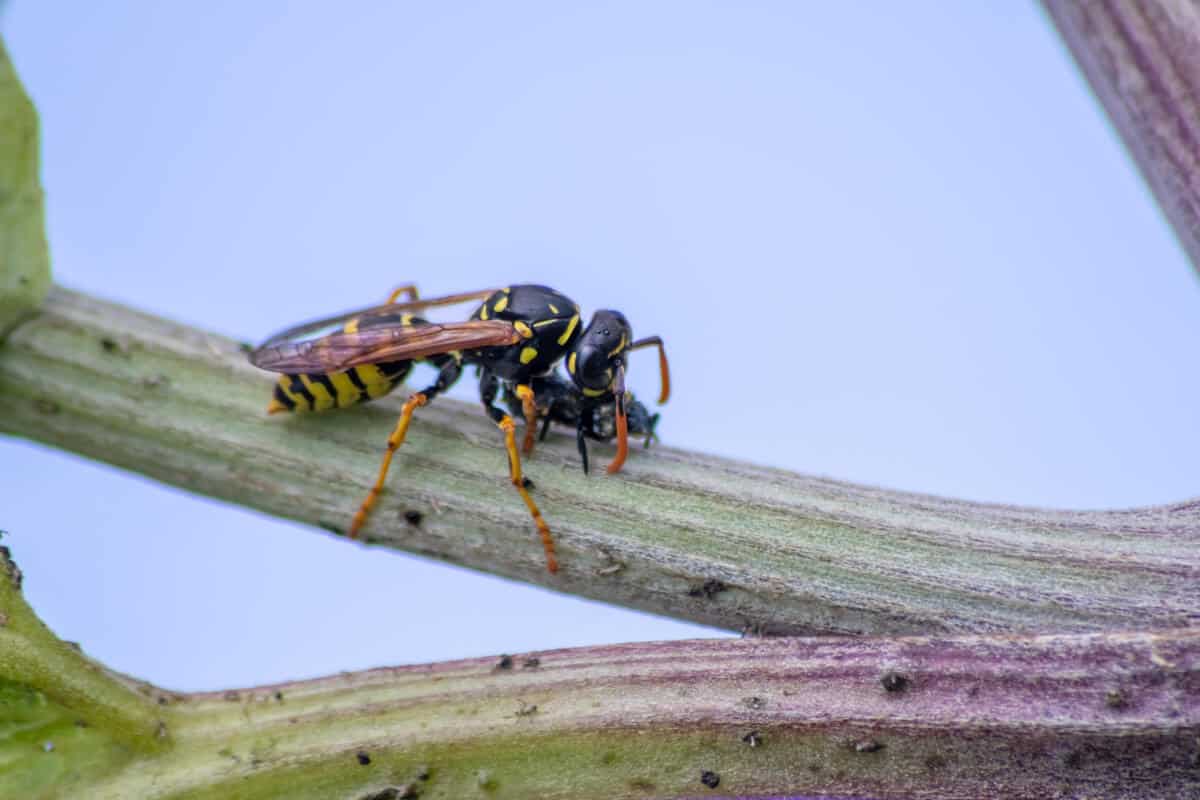
Ants are mostly scavengers, meaning that they are usually not a great danger to your vegetables, at least directly.
In fact, the main problem ants cause in the garden is due to their love of aphids.
Aphids are tiny insects that feed from the lymph of plants. If left unchecked, they can grow greatly in numbers and weaken your plants considerably. They also open up the way for parasites and illnesses.
Ants feed from honeydew, which is a sweet, sticky liquid that aphids excrete. Aphids and ants often develop a symbiotic mutualistic relationship, with ants farming the aphids and protecting them from predators.
If you notice your sickly vegetables crawling with ants, they are most likely not the ones causing the damage. Most times, it will be an aphid problem. However, there exist a few exceptions.
Certain species of ants consume the delicate portions of vegetable plants, including shoots and seedlings.
Occasionally, they also nibble on the sweetest fruits and vegetables, but the harm they cause this way is negligible.
Many ants also eat seeds and pollen. Let’s look at some of the most common vegetables that attract ants:
1. Tomatoes
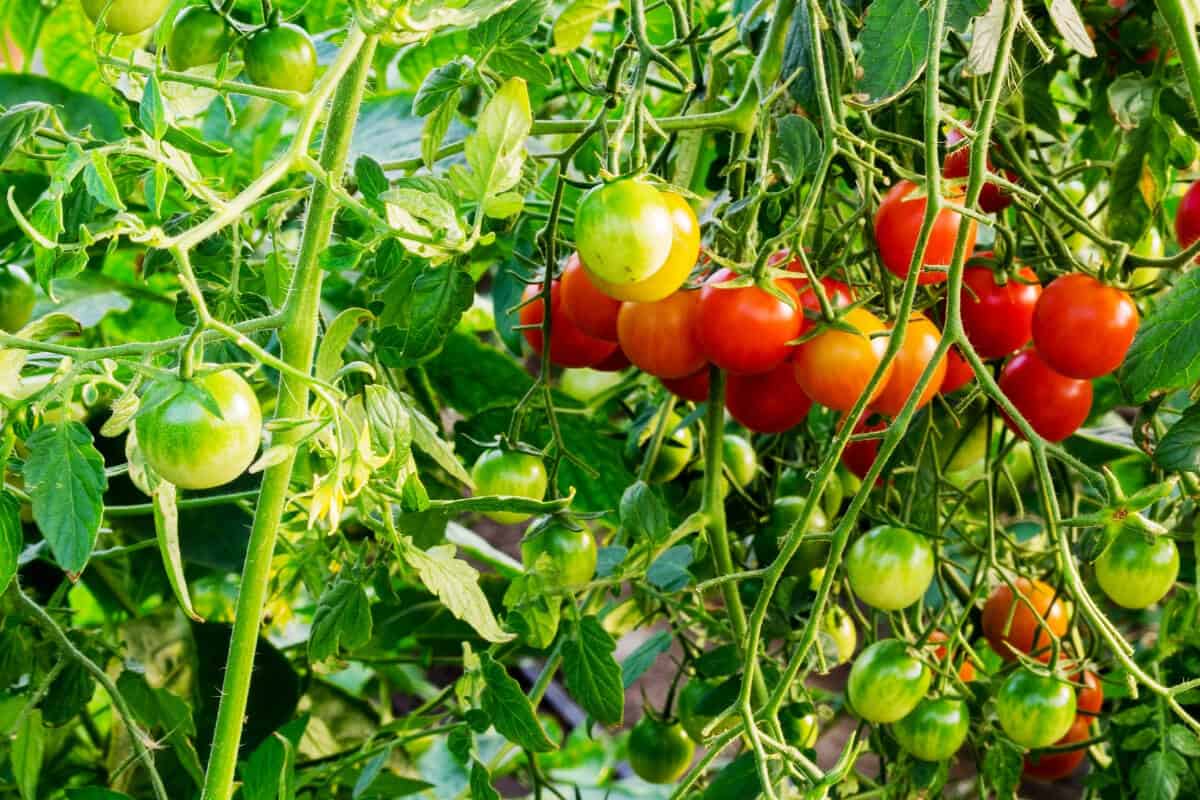
If you see your tomatoes swarming with ants, you can be almost positive that they are infested with aphids.
This is because tomato plants are an aphid favorite, so ants are attracted to them as well. Finding ants on tomatoes might also mean that there are other pests.
Ants can be a great help in this case, since they feed on the eggs and larvae of many harmful insects.
Before taking action then, you might want to identify the problem. If it’s an aphid infestation, get rid of them directly.
If the root issue is caused by a different insect, it may be advisable to refrain from taking action. In many cases, the ants will resolve the issue on their own.
Read more about How to Keep Ants off Tomato Plants.
2. Peppers
Pepper plants may frequently attract ants due to the common presence of aphids, although there exists a certain type of ant that may pose a direct threat to them.
While Leafcutter Ants don’t feed on peppers, they remove the leaves from the plants. As their name suggests, these ants usually cut out pieces of leaves and carry them back to their nest.
They use them to farm a fungus to provide food for their larvae. If their population increases too much, Leafcutter Ants can cause serious problems for your plants.
If you notice ants on your pepper plants, you should try to determine if they are Leafcutter Ants or some other species.
In the latter’s case, your plants’ problems will most likely be due to the presence of aphids.
Learn more about How to Get Rid of Ants on My Pepper Plants.
3. Cucumbers
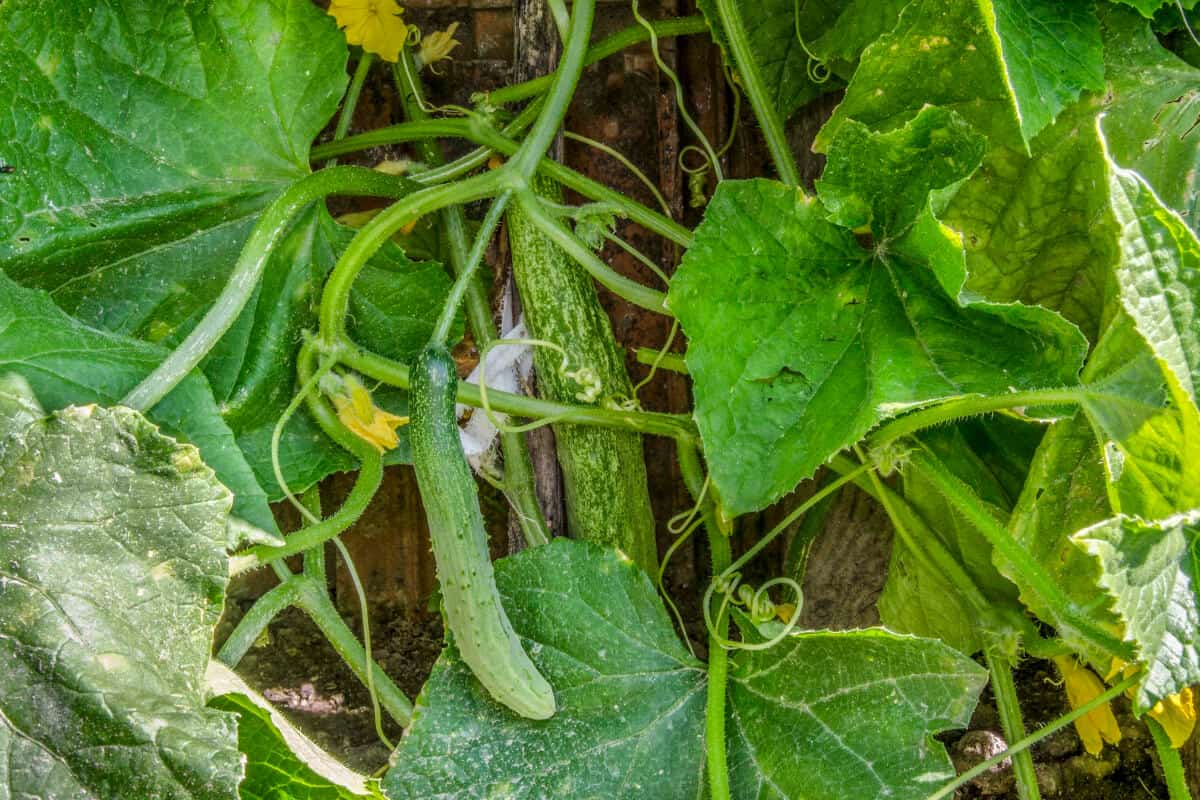
Different kinds of ants might be crawling on cucumber plants.
While ants will occasionally feed on fruits, they won’t eat cucumbers. In fact, some people advise using cucumber peel as a method to get rid of ants.
Cucumbers are attractive to aphids, so if you notice damaged leaves swarming with Black Ants, know that they are there to feed on the honeydew produced by aphids.
Scale insects are another pest that sucks the sap from plants, but they are much less common than aphids.
On the other hand, if you notice Red Ants, it’s a whole different matter. These are called Fire Ants, and they are dangerous especially for young cucumber plants.
Fire Ants feed on the stems of young seedlings and transplants. In this phase, the plants are very delicate, so the Fire Ants might kill them off.
Learn about How to Keep Ants off Cucumber Plants.
4. Pumpkin
Ants are particularly attracted to pumpkin flowers. Since they love any sweet food, they feed from the pollen of these and other flowers.
This is not the main reason why they might be harmful, though. Sometimes, they actually help the plants by pollinating them, and they don’t eat enough pollen to be a threat.
In some cases, however, they can disrupt the normal process by keeping bees away from the flowers.
Bees are much more efficient pollinators than ants, so the plants will ultimately suffer from their absence.
The main culprit is an invasive species, Anoplolepis gracilipes. Another reason why ants might be attracted to pumpkin plants is the presence of aphids.
Ants also love pumpkin seeds, and they might dig them up to carry them back to their nests.
5. Lettuce
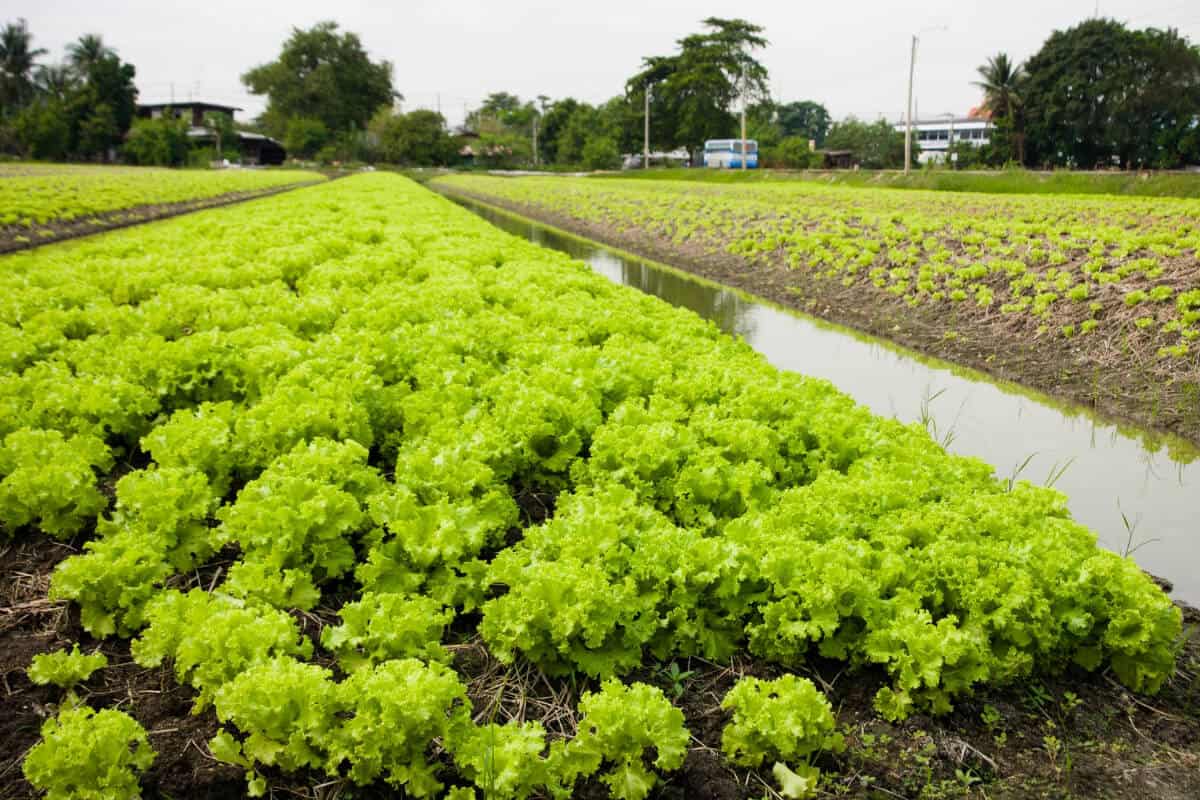
Ants might be attracted to lettuce for two main reasons: the first one is, unsurprisingly, aphids. While aphids normally don’t attack lettuce, ants might move them there to protect them.
Since the sup-sucking insects have many predators, if they are in danger, the ants carry them to a safer location.
You will notice straight away if this is the case since the leaves will be covered with clusters of tiny crawling insects.
The second reason is that lettuce leaves have the capacity of trapping little drops of water, even in very hot weather.
In dry conditions, ants might use this as a source of water. They are actually not the only insects that do this, as bees have also figured out this way to stay hydrated.
Finally, ants will also feed from lettuce seeds. This might be a good reason to plant your lettuce in a greenhouse or other protected environment and transplant it later on.
6. Beans
Many species of beans are very attractive to ants. If you see a lot of ants on your bean plants, it will most likely be due to an aphid problem.
Just a few of them will mean instead that they are feeding from nectar.
Certain species of beans have developed special organs called external floral nectaries, which look like leaves but actually produce extra nectar.
Sweet nectar attracts beneficial insects such as ants, which can protect the beans from parasites. In both cases, ants aren’t causing damage to your beans.
Read more about How to Get Rid of Ants on Bean Plants.
Best Ways to Get Rid of Ants in a Vegetable Garden
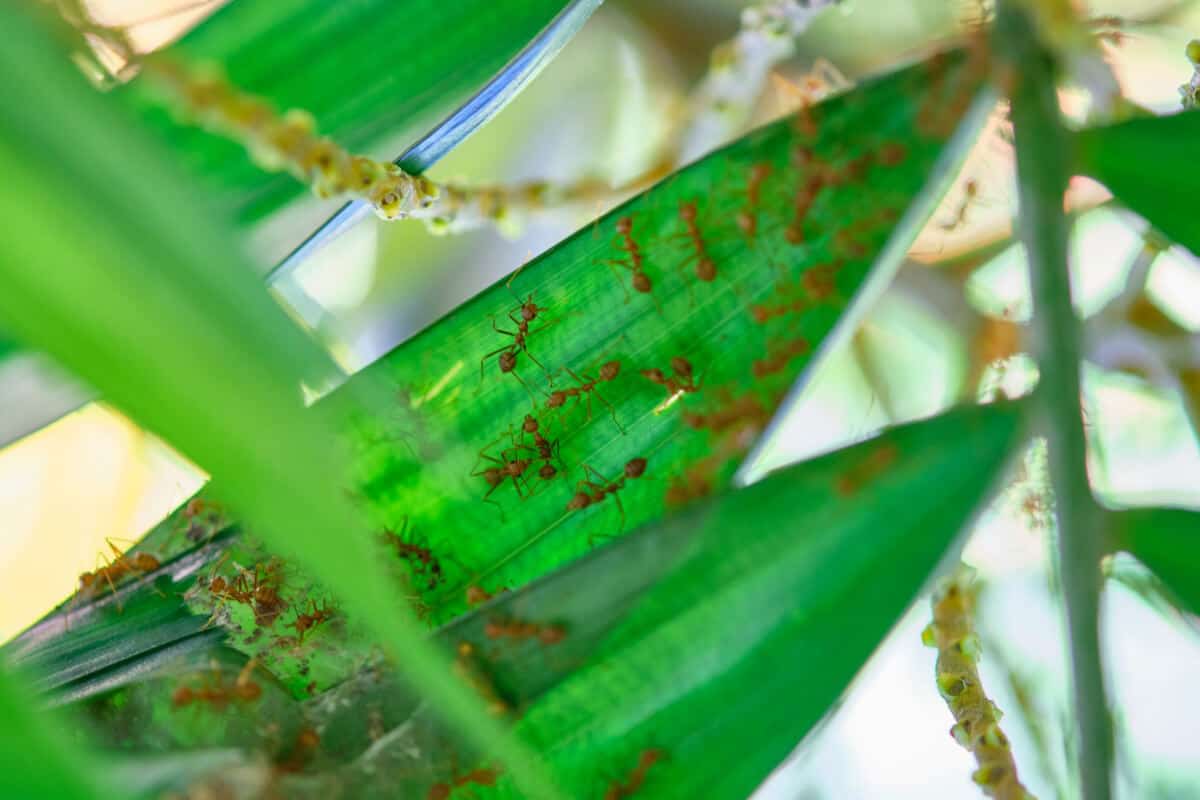
Even if in most cases ants don’t cause direct damage to your garden, they might still be a big nuisance.
If it’s the Black Ants you see on your vegetables, you might want to check if the problem is actually aphids before taking drastic measures to get rid of ants, since this won’t solve the underlying cause.
If you observe the presence of Red Ants or Carpenter Ants, you may attempt one of the subsequent approaches to eliminate them.
It is recommended to refrain from killing them, particularly with chemical products, as they play a crucial role in maintaining a healthy ecosystem and can provide benefits to the soil.
1. Encourage Predators
Many insects prey on ants, such as wasps. Birds are known to feed on ants, making them effective natural ant population controllers if attracted to your garden.
Planting a diverse range of native flowers and shrubs can enhance the appeal of your garden and attract beneficial insects, such as bees.
2. Spread Cucumber Peels
Ants really don’t like the smell of cucumbers so an effective way to keep them away from the garden is to simply spread some cucumber peels around your vegetables.
3. Plant a Border of Odorous Species
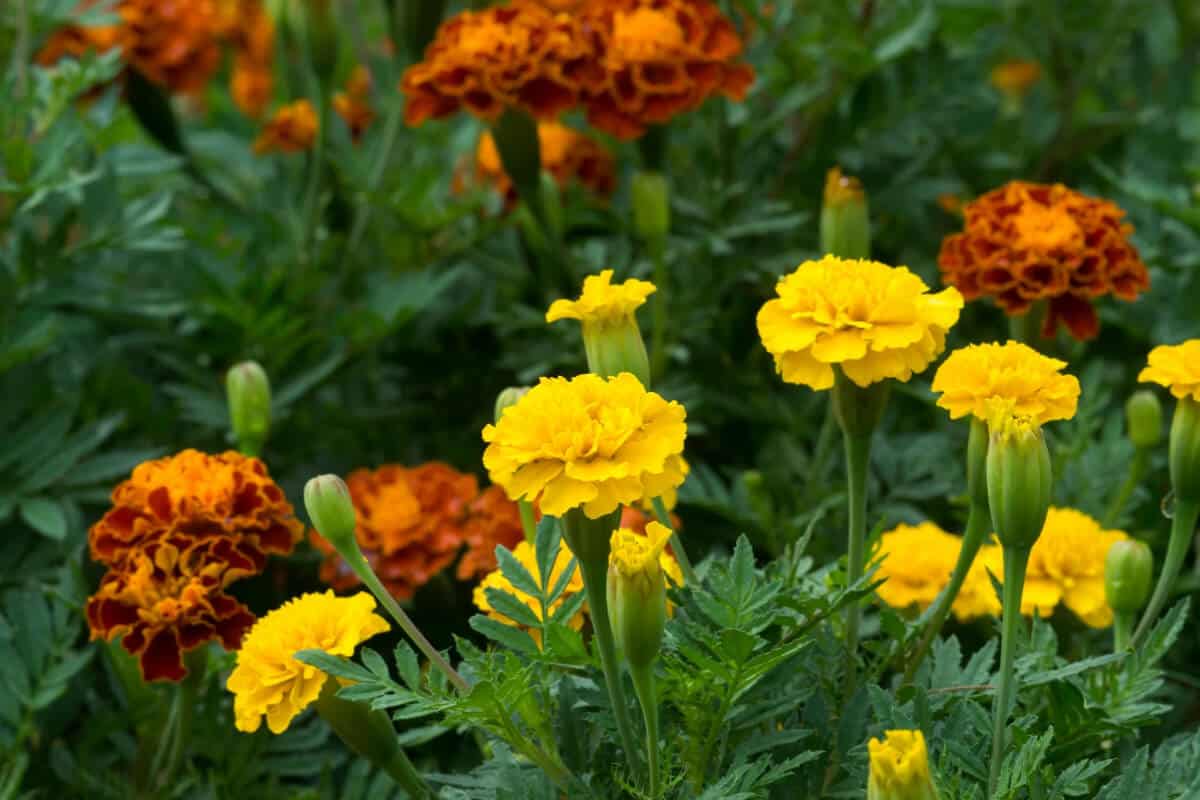
There are some plants that ants really can’t stand, such as:
- Marigolds – They are annual plants with brightly colored flowers and a strong, pungent scent. They repel ants and other pests due to their odor.
- Lavender – An herb with a strong, pleasant aroma. For centuries, its strong aroma has made it a natural repellent to ants and other pests.
- Fennel – A plant that has tall, feathery leaves and small yellow flowers, and it is commonly used as an herb or spice in cooking. Its strong aroma makes it an effective natural repellent for ants, as they are deterred by its smell.
- Chamomile – A kind of plant that has fragrant leaves and flowers. Due to the essential oils it contains, it has been traditionally used to repel ants.
- Peppermint – A type of mint plant with a strong scent that contains menthol and limonene oils, which can act as a natural repellent for ants.
By planting a border around your garden with these species, you will ensure that ants will stay out of it.
For a quicker solution, you can also use these plants to make a spray that will deter ants. You will need to boil the leaves, mix the resulting water with some dish soap and spray it directly on the plants.
4. Create a Barrier
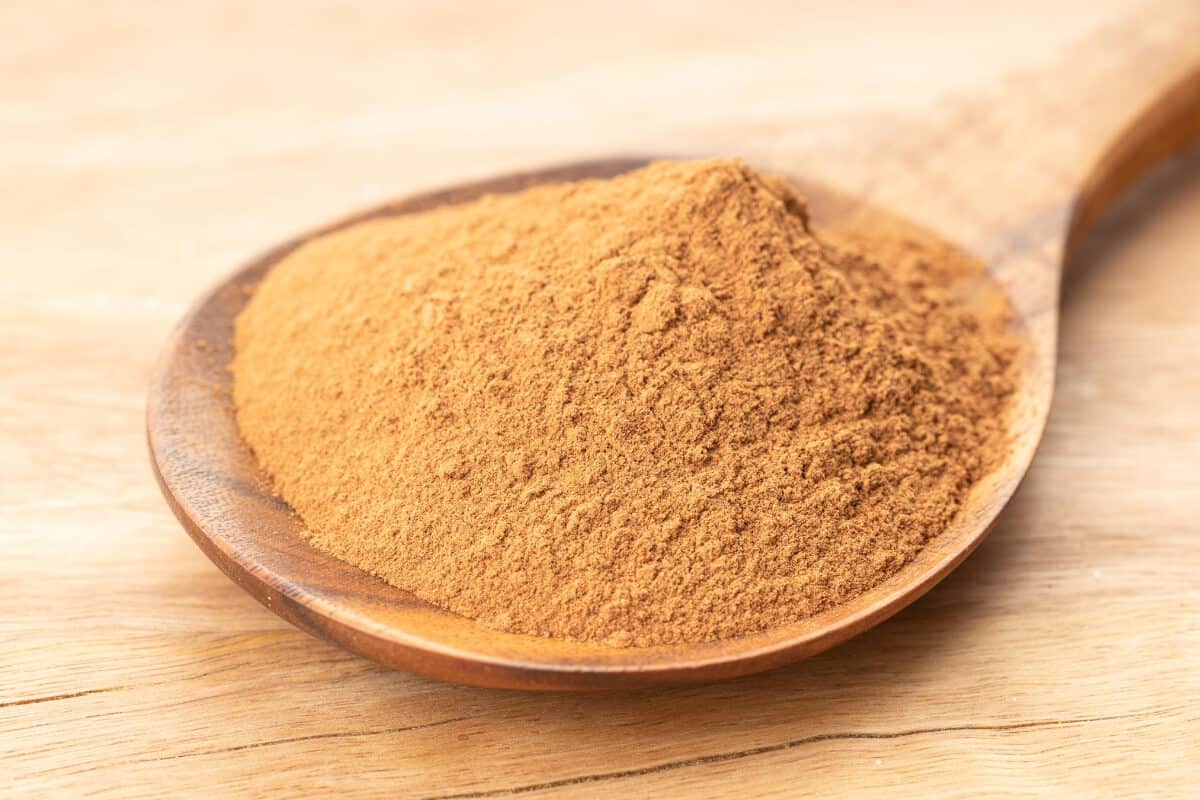
Apart from certain flowers, there are also other smells that repel ants.
Ground cinnamon, curry, and cayenne pepper are three spices you can use to make a barrier around your garden that will repel ants.
If you have some, you can also use some crushed chalk or coffee grounds as ants will not cross it.
Just keep in mind that you will have to refresh your barrier after every rainfall or strong wind.
5. Diatomaceous Earth (DE)
This powder is made from fossilized algae. It’s a natural product that is very effective against ants and other pests, but it needs to be used in dry conditions.
DE is an especially good method because it doesn’t cause any harm to plants, mammals, and birds.
It takes a while to notice its effects, as this product works by prickling the exoskeletons of the insects, causing them to die slowly from dehydration.
You can simply sprinkle this powder next to your vegetables.
6. Boiling Water
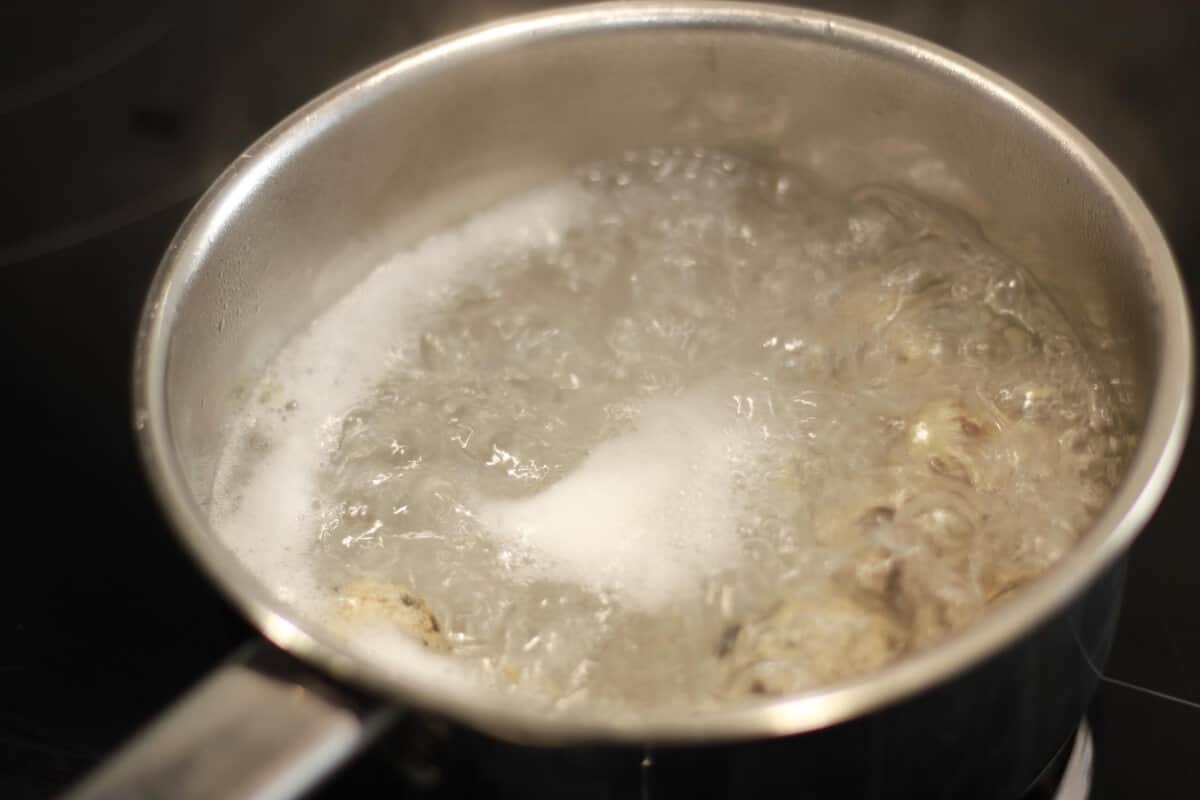
If you desire to eliminate an ant colony and have successfully located their nest, this method is highly recommended.
Pouring boiling-hot water into ant nests is an effective and inexpensive method to get rid of them.
You will need to do this a few times though, as ants build their nests to resist flooding and heavy rainfall.
7. Natural Sprays
Various recipes for insecticides can be made using natural ingredients that are readily available at home.
Experiment with a combination of liquid soap, cooking oil, and water. This sticky liquid will cling to the ants’ bodies, suffocating them.
You can also mix white vinegar with water in a ratio of 3:1, and spray it directly on the ants.
You will want to spray their trails as well as vinegar is also effective to remove the pheromones that ants leave to guide their own kind to a source of food.
8. Borax Powder
This product is often used as an all-purpose cleaner, but it’s also a powerful insecticide.
If you’re feeling lazy, you can simply sprinkle some of it on the ant nest.
The best way though is to make an ant bait by mixing borax with sugar or honey.
This will attract many ants, which will then carry it back to their nests and share it with the queen. This method kills off the entire colony of ants in a couple of days.
9. Pesticide
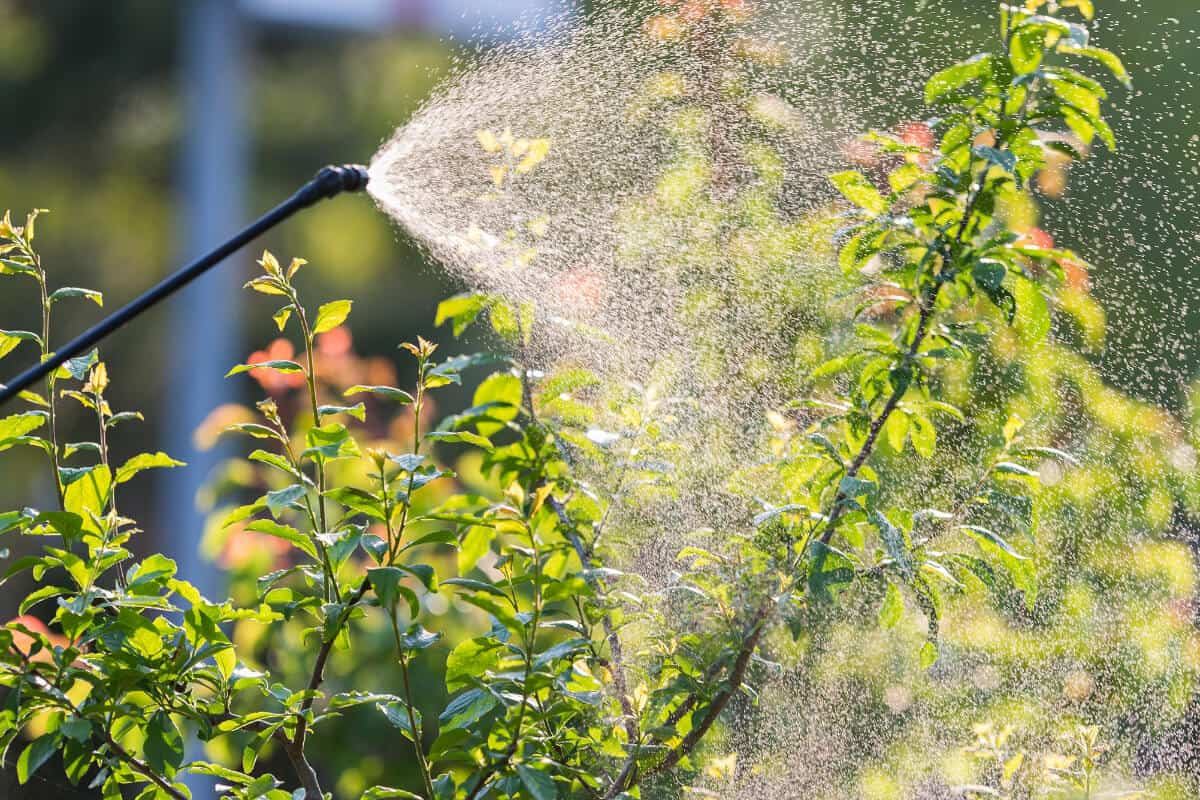
If all else fails and Red Ants are decimating your garden and stinging you every time you work in it, you might choose to resort to this last solution.
You can find different kinds of pesticides in most garden stores.
Just remember that they always have adverse effects on the ecosystem so always follow the product label directions to minimize its harmful effects.
The toxic chemicals in these products can be especially harmful to bees, which are very vulnerable to some of the active ingredients.
They can also harm other beneficial insects and will leave traces on your vegetables, which won’t be as healthy.
Final Thoughts on Getting Rid of Ants in Vegetable Gardens
Ants can be both beneficial and problematic in vegetable gardens.
If you are looking to cultivate a thriving crop, it is crucial to take preventive steps to keep ants under control in your garden.
From planting companion plants to creating barriers using natural materials, there are many effective ways to deter ants from your vegetable garden.
Moreover, frequent inspection of the garden and monitoring the ant activity can help detect infestations early, and addressing the root cause can prevent further damage.
Remember, a healthy garden is one that is free from pests and filled with delicious, organic produce!
Take a look at these interesting articles to know more about getting rid of ants in vegetable gardens:
- How to Prevent Ants in Plant Pots
- How to Get Rid of Small Red Ants in Garden
- How to Get Rid of Fire Ants in Garden
- Ants on My Strawberry Plants
Sources:
- https://ucanr.edu/blogs/blogcore/postdetail.cfm?postnum=14087
- https://dc.statelibrary.sc.gov/bitstream/handle/10827/47347/CU_ES_HGIC_1263_2010-8.pdf?sequence=1&isAllowed=y
- https://naldc.nal.usda.gov/download/CAT40000334/PDF
- https://naldc.nal.usda.gov/download/CAT87213835/PDF

